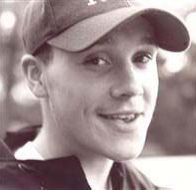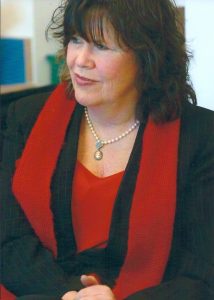Ian James Eaccarino

Ian Eaccarino
On September 10, 1996, I awoke to every mother’s nightmare. I found my 20– year–old son Ian dead in his bed of an accidental heroin and valium overdose.
Ian James Eaccarino was a promising college student with everything to live for. He was bright, athletic, popular, and handsome. He was dearly loved by his family and by his many friends. Drugs destroyed his life.
Ian started using tobacco and marijuana in the eighth grade. He was in denial about the problem, minimizing it as so many young people do. I was unaware that he was using drugs, thinking the changes were just adolescent behavior.
Ian became very good at disguising his drug habit. All through high school, he excelled on the baseball team and was the third highest scorer on the lacrosse team. He insisted he was okay, but he really wasn’t.
In his senior year of high school, his car was firebombed in the driveway of our home. In retrospect, we realized it was drug related, but at the time, the explanation he gave us made sense. It was all a lie. Drug activity is typically associated with violence and deception.
Nine months before he died, Ian and two friends snorted heroin for the first time. He was a college sophomore at the time. One boy became scared, one became sick — and Ian liked it.
During his last summer, while he was in counseling and recovery, Ian renewed his close relationships with all of us. My son came back to me. We talked a lot and played tennis. He enjoyed playing golf with his step–dad Larry. To his doting big sister Candace, who has Downs Syndrome, he was a ray of sunshine.
He shared some things from his heart with me the summer before he died, and I began to develop some insight into the private pain he had held onto for so long. He had so much regret over his drug use. “Mom, I messed up. It is not Dad’s fault, or Larry (his stepfather), or your fault. I take responsibility. I messed up.” My heart was broken. But he couldn’t stop using drugs.
The evening before he died, I realized that he had relapsed. He said to me, “Mom, I want to see the doctor in the morning, and I don’t want to move in with my friends.” That was the deal. Later, he came upstairs and said, “I’m sorry Mom.” It keeps ringing in my ears.
Never did I think he would go downstairs and do it one more time. Even with all the remorse, the drugs were bigger than he was.
He died in his sleep and I found him before I went for my morning run. He didn’t have a second chance. Neighbors told me my cries for help to 911 that morning were heard two blocks away. My life changed forever. I remember sitting on Ian’s bed the day he died.

The dark-green convertible couch where Ian died of a heroin and valium overdose is a silent presence in the basement studio that was his bedroom. His sister Candace, who has Down Syndrome, sleeps on it every Tuesday night when she visits from the group home.
Every week, she puts it cushions on the floor, covers them with a blanket and makes a bed for her brother. “Ian comes down from the clouds,” she insists, and sleeps there. When I see Candace cry, I get angry with Ian for causing her so much pain, but I know it was the drugs. Drugs make you crazy. Drugs stole Ian from us.
Since Ian’s death, many people have asked me to speak about his struggle with his addiction and its effect on our family and friends. The Courage to Speak Foundation, Inc. was born with the mission to save lives by empowering youth to be drug free and encouraging parents to communicate effectively with their children about the dangers of drugs, breaking what I call “the conspiracy of silence” around the disease of addiction.
We were good parents. We thought we had everything taken care of. The most important thing we have learned is that secrets and silence are our common enemies. This is why we travel throughout our community, our state and our nation, inspiring youth, parents and educators to have the courage to speak…so that no other family will suffer the terrible loss that ours did.
This was my promise to Ian.




